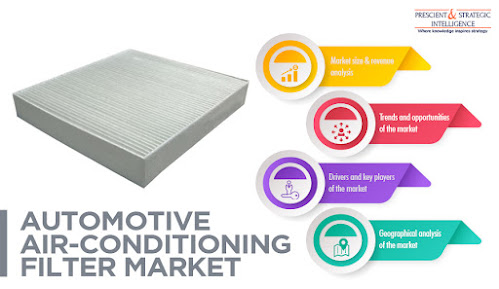Europe Automotive Tire Market Outlook, Vehicle Type, Design and Geographical Outlook
The European automotive tire market is likely to reach $26,327.8 million by 2024 and is expected to grow with a CAGR of 4.5% during the forecast period. The development of the automobile industry in Europe is the key contributor to the growth of the tire market in the region. Additionally, with the increasing average lifespan of vehicles due to technological advancement, the replacement market of automotive tires is expected to boost enormously, leading to the growth of the overall tire market in Europe, according to P&S Intelligence.
On the basis of end use, the Europe automotive tire market has been categorized into original equipment manufacturer (OEM) and aftermarket. Between the two, the aftermarket category held larger market share, accounting for over 70% sales volume, in 2018. This is due to the fact that a tire needs to be replaced around every 50,000–80,000 km of usage. As the replacement rate of tire is much higher than the replacement rate of a vehicle, therefore, the demand for tires in the aftermarket is high.
Based on design, the European automotive tire market has been categorized into radial and bias tires. Between the two, the radial tires category held larger market share, in terms of sales volume, in 2018.
High tire replacement rate has led to the growth of the European automotive tire market. Due to various technological advancements in recent years, average lifespan of vehicles has significantly increased. The average lifespan of the vehicles increased from 10.5 years in 2015 to 12 years in 2018. Factors such as growing competition among automakers and rising government regulations have led to the improvement of the vehicle’s longevity and reliability over the years.
Geographically, Germany dominated the European automotive tire market during the historical period and is expected to continue dominating the market in the future as well. The country is the hub of automobile industry, where maximum number of passenger cars are being produced and sold each year, in the world. In 2018, over 5.1 million and over 3.4 million passenger cars were produced and sold in Germany, respectively.
The European automotive tire market was consolidated with four major players, namely Compagnie Générale des Établissements Michelin, Bridgestone Europe NV/SA, The Goodyear Tire & Rubber Company, and Continental AG, together accounted for over 70% of the market share in 2018. Compagnie Générale des Établissements Michelin is the largest player in the market, due to the existence of an extensive dealer network across all European countries as well as the presence of a loyal customer base in France. The other major players operating in the market are Cooper Tire & Rubber Company, Pirelli & C. S.p.A., Yokohama Tire Corporation, Hankook Tire Company Limited, Nokian Renkaat Oyj, Apollo Tyres Limited, and Sumitomo Rubber Industries Limited.
On the basis of end use, the Europe automotive tire market has been categorized into original equipment manufacturer (OEM) and aftermarket. Between the two, the aftermarket category held larger market share, accounting for over 70% sales volume, in 2018. This is due to the fact that a tire needs to be replaced around every 50,000–80,000 km of usage. As the replacement rate of tire is much higher than the replacement rate of a vehicle, therefore, the demand for tires in the aftermarket is high.
Based on design, the European automotive tire market has been categorized into radial and bias tires. Between the two, the radial tires category held larger market share, in terms of sales volume, in 2018.
High tire replacement rate is a major driver observed in the European automotive tire market
High tire replacement rate has led to the growth of the European automotive tire market. Due to various technological advancements in recent years, average lifespan of vehicles has significantly increased. The average lifespan of the vehicles increased from 10.5 years in 2015 to 12 years in 2018. Factors such as growing competition among automakers and rising government regulations have led to the improvement of the vehicle’s longevity and reliability over the years.
Private labeling of tires offers ample opportunities in the European automotive tire marketPrivate labeling in the European automotive tire market offers various growth opportunities to tire manufactures. Private labeling primarily means production of tires by one company, followed by their sales under the brand of another company. Some of the tire manufacturers are involved in private labeling to meet the market demand for their products and optimize their bottom-line profits, with selling tires at high margins at high volumes.
Germany stands as the largest automotive tire market in Europe
To Get More Info: http://bit.ly/2lRLoHH
More Tire Business Related Report@




Comments
Post a Comment